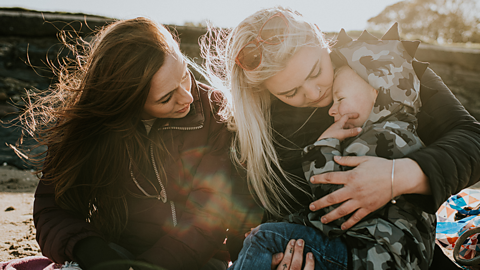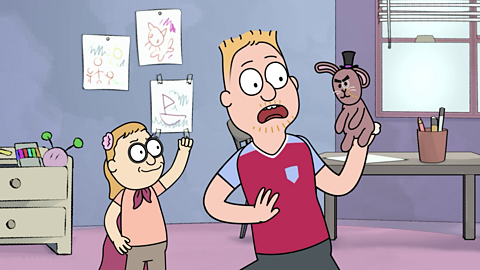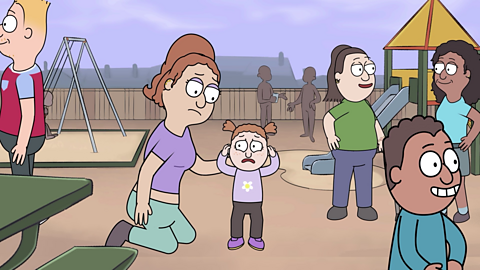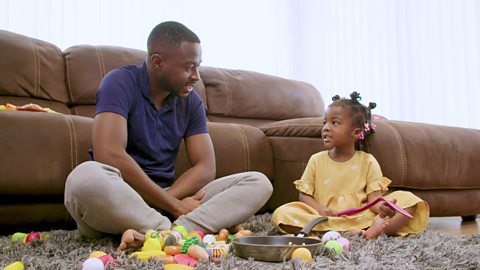Children can be scared of all sorts of things, real and imaginary.
The good news is, their fears usually go away gradually. But what should you do if your child is scared now? How can you help them feel better?
Our helpful video below shares some top tips to help you stay calm and matter of fact and help them deal with fear.
Your child's terrified, hiding in a corner under the blanket. Sound familiar? What are they scared of? A spider? A monster under the bed? Or, the thought that you might give them broccoli again?!
Children can be scared of all sorts of things, real and imaginary. They can show signs of fear as babies and start expressing it in words when they talk.
It's common for preschool-age children to develop fears about things like animals, storms, water, monsters, and the dark. They also pick up on your fears, so try not to react when you see that huge spider!! Or… that tiny spider!
The good news is, their fears usually go away gradually. So when your child is feeling scared, how can you help them feel better?
Reassure them by saying you're there for them, and they can always share their feelings with you. And praise them for telling you they're scared - that's a biggie, so they feel comfortable opening up.
When you find out what's scaring your child, acknowledge how they feel. Don't laugh, dismiss their feelings, or play along.
And stay calm and matter of fact, to help them deal with fear.
Your little one might be afraid of imaginary or magical things, or have big worries about real everyday things. They might be scared of the big bad wolf in the fairy tale, or of a barking dog down the road.
So talk with them about their fears. Play and creative activities can help as well. Making up stories together is a great way to talk through their feelings.
And drawing can help a child express themselves too.
So there we go. No need to be scared. Except for broccoli. Coz broccoli will always be a bit scary!
What sorts of things are children scared of?
It's common for preschool-age children to develop fears about things like animals, storms, water, monsters, heights and the dark.
Fears often go away gradually.
What are the signs my child is feeling afraid or anxious?
When young children feel anxious, they cannot always understand or express what they are feeling. You may notice that they:
- Cry, become irritable, or clingy
- Have difficulty sleeping
- Wake in the night
- Wet the bed
- Have nightmares
Here's how to help your child with their fears

1. Reassure your child they are safe
Let them know you’re there for them and that they can always share their feelings with you.
Praise them for letting you know about what’s scaring them – this can help them to feel comfortable opening up to you.
2. Acknowledge their feelings
Show them that you understand what they’re feeling without laughing or dismissing them.
Stay calm and take on a matter-of-fact tone to help them feel all is well.
3. Help them learn the difference between real and imaginary and work through fears creatively
Talk with them about their fears.
Play and creative activities can help children to make sense of things.
Making up stories or drawing together is a great way to talk through their feelings and help them to express how they’re feeling.

Establishing a calming bedtime routine can help children who are scared of the dark. Check out our article on bedwetting if you've got any questions and are wondering whether to see your GP.
Created with help from child psychologist Dr Claire Halsey and child development researcher Dr Michelle Peter.






